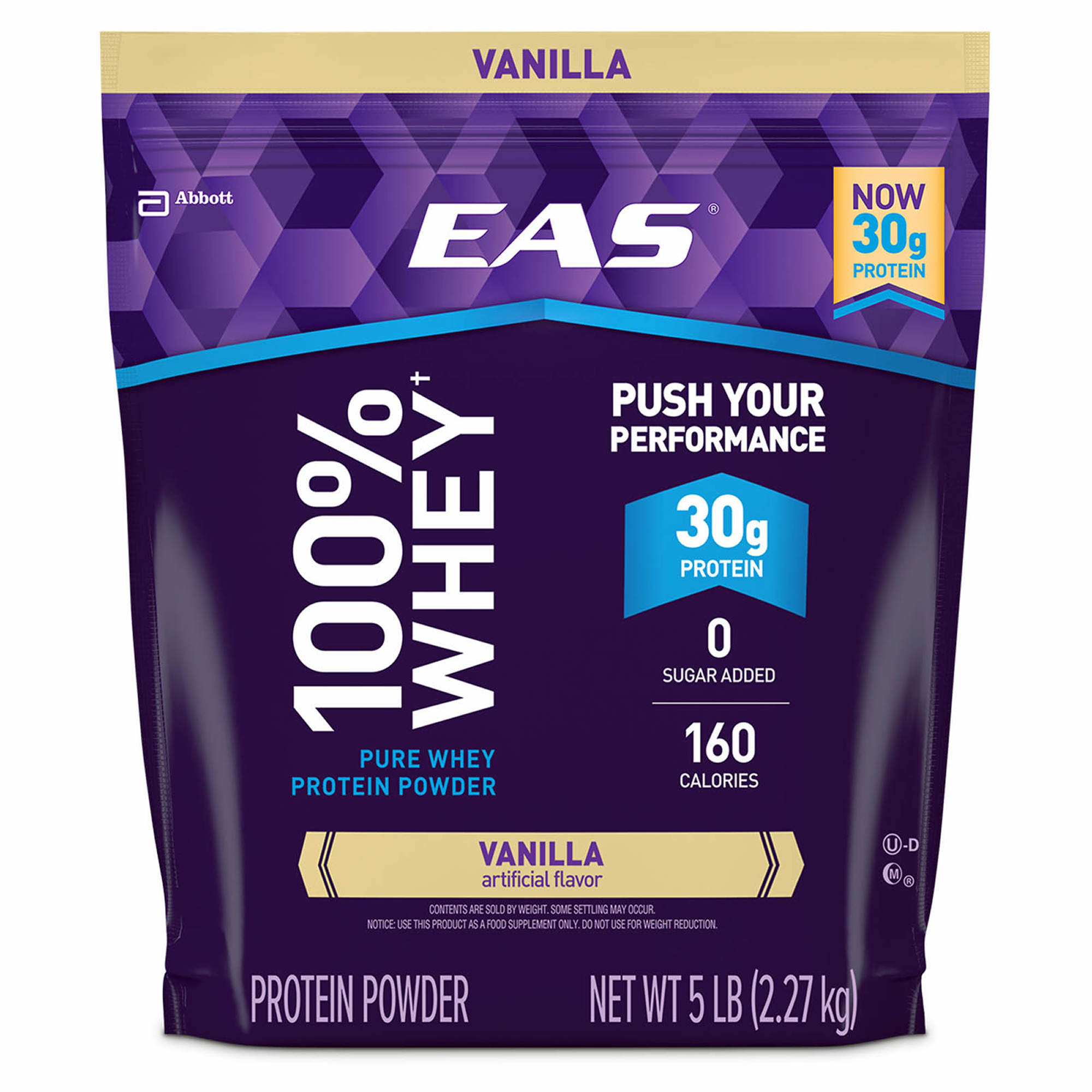
Protein supports muscle growth and repair. People often turn to protein supplements (such as whey, casein, and soy) to optimize those effects, especially after a workout. However, whole foods, not dietary supplements, should be your first choice for protein. Whole-food protein sources such as lean meats, fish, dairy products, legumes, nuts, and seeds are just as effective as (in some cases
more effective than) protein supplements. Whey protein products can be an acceptable, convenient, and efficient way to deliver protein when your needs are greater than you can get through diet or when normal dietary sources are not available.
Background
Whey is a type of protein found in milk that contains all the essential
amino acids (EAA) needed for muscle growth and repair. Dairy products, particularly milk, are the best “whole food” sources of whey protein. Whey protein also can be extracted from milk during the cheese-making process and concentrated into a powder. Whey protein powders can be sold as conventional foods or as dietary supplements and are often added to other food and supplement products, including gels, powders, sports/energy bars, and ready-to-drink shakes.
Are there any concerns with taking whey protein products?
Whey protein is generally considered safe to consume. Keep in mind, though, that whey comes from cow’s milk, so if you have a milk allergy you should avoid whey protein products. In the case of whey protein supplements, especially those marketed for performance enhancement, you also need to watch out for other ingredients that you might not want or need in your diet. Whey protein supplements also can contain other ingredients that might interact with certain medications, so talk to your doctor before taking them.
If I take a protein supplement, is whey protein the best type to take?
Whey is often considered superior to other types of protein such as casein (another milk protein) and soy. This is because whey is digested more quickly than casein and soy, which leads to a rapid increase in the levels of amino acids in the body. Whey also has a higher content of leucine, an important amino acid for building muscle. However, casein digests more slowly and can help prevent muscle breakdown, particularly after an overnight fast. Therefore, a combination of whey and casein, as found in a glass of milk, might be more beneficial than whey protein alone. More research is needed to compare the effects of whey versus other supplemental forms of protein, such as from beef and eggs and protein blends.
When can I use whey protein?
Whey protein products are acceptable when high-quality protein foods (animal- or plant-based) are unavailable or not practical or convenient, such as in theater. Overall it’s better to get your protein from whole foods, such as lean meats, fish, low-fat dairy products, legumes, nuts, and seeds, throughout the day at meals and snacks. Eating a variety of protein foods provides you with all of the EAA, plus essential nutrients such as vitamins and minerals that are important for performance and recovery. In general, service members consume enough protein through food sources alone and do not need protein supplements.
How much whey protein should I take?
If food sources of protein are not available, whey protein products can help you meet your overall protein needs, but there are no official whey protein recommendations. Keep in mind that most whey protein powders provide 20–30 grams of protein per serving or “scoop,” which is the same amount of protein in about 3–4 oz of meat, poultry, or fish. To learn how to calculate your own protein needs based on your body weight and activity level, see HPRC’s
Protein Requirements infosheet. Going beyond the protein recommendations will not provide any additional benefits to your performance.
Debrief
There is no clear benefit to consuming whey over other sources of protein. The International Society of Sports Nutrition, American College of Sports Medicine, Academy of Nutrition and Dietetics, and Dietitians of Canada recommend consuming protein from whole foods. When high-quality protein foods are not available or not practical, protein products that contain both whey and casein are acceptable and can be beneficial. Keep in mind that whey protein supplements might contain other ingredients, so it’s possible to get too much of something you don’t need or want. Read all labels carefully, and see if the supplement product has been evaluated by an
independent third-party organization.
https://www.opss.org/articles/whey-protein-way-go